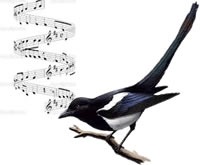The term cellar door has, according to J. R. R. Tolkien and a number of other writers, a particularly pleasing sound, even though its meaning isn’t anything special. An article in the New York Times discusses the origins of this idea, an example of phonaesthetics*, and cites a 1903 novel by Cyrus Lauron Hooper, Gee-Boy, as the first mention in writing of the aesthetic properties of cellar door. It is said of the main character in the novel that:
“He even grew to like sounds unassociated with their meaning, and once made a list of the words he loved most, as doubloon, squadron, thatch, fanfare (he never did know the meaning of this one), Sphinx, pimpernel, Caliban, Setebos, Carib, susurro, torquet, Jungfrau. He was laughed at by a friend, but logic was his as well as sentiment; an Italian savant maintained that the most beautiful combination of English sounds was cellar-door; no association of ideas here to help out! sensuous impression merely! the cellar-door is purely American.”
In 1955 J. R. R. Tolkien wrote an essay entitled English and Welsh which has been mentioned as the origin of the idea:
“Most English-speaking people…will admit that cellar door is ‘beautiful’, especially if dissociated from its sense (and from its spelling). More beautiful than, say, sky, and far more beautiful than beautiful. Well then, in Welsh for me cellar doors are extraordinarily frequent, and moving to the higher dimension, the words in which there is pleasure in the contemplation of the association of form and sense are abundant.”
The OED lists a source from 1425, when it was written celer dore, as the earliest use of cellar door in English, though doesn’t mention the phonaesthetics of the term.
* Phonaesthetics is the study of the inherent pleasantness (euphony) or unpleasantness (cacophony) of the sound of certain words, phrases, and sentences. It comes from the Greek: φωνή (phōnē) – voice-sound; and αἰσθητική (aisthētikē) – aesthetics [source].
Cellar door words for me include spollagyn (chips/fries in Manx), schmetterling (butterfly in German) and spontus (terrible, awful in Breton). There are more examples on my favorite words page.
What are you cellar door words?
